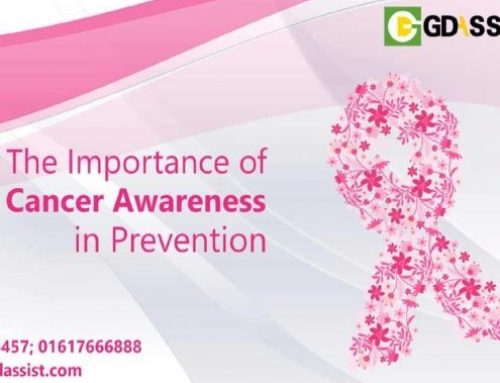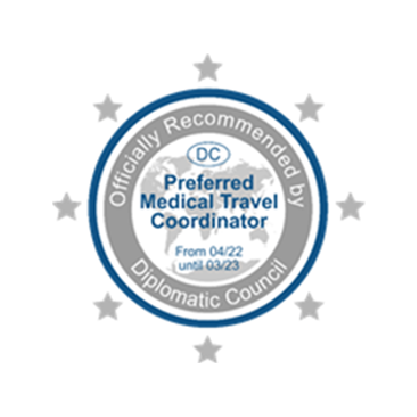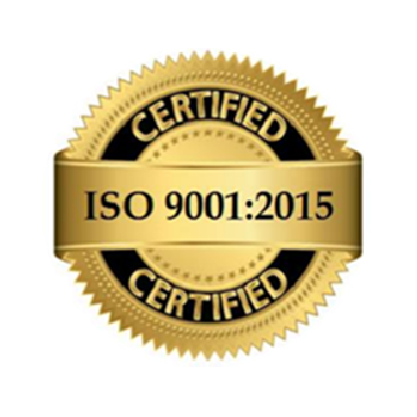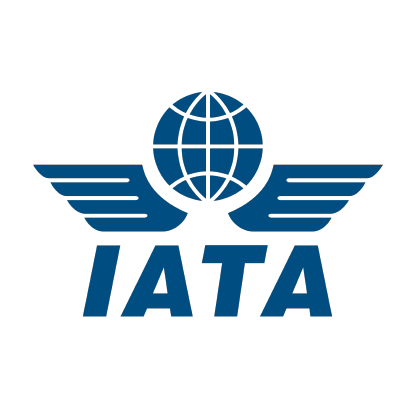The importance of being cancer-wise
The dreaded six-letter word is all the more feared because it is apparently invisible. Cancer can strike anybody, irrespective of gender, profession, ethnicity and class.
This article narrates the stories of Sarah and Borhan, geographically separated, and their fight against cancer like million others.
While revealing certain statistics on malignancy, readers will also find this post useful as it discusses the importance of cancer prevention.
“I’m really sorry but the mammogram has shown two tumours in the left breast,” said the doctor.
This is a true story of 42-year-old Sarah de-Guille.
The door handle of the hospital room in which Sarah was admitted started to turn. She knew this was the moment that could change her life forever.
The surgeon appeared with a paramedic staff. He started to go through Sarah’s notes comprising family history, the mammogram results and the biopsy and then delivered the devastating news:
“I’m really sorry but the mammogram has shown two tumours in the left breast.
Sarah felt like someone had kicked her in the stomach. She never thought she would be given the news that she had breast cancer. Until that moment, her life was pretty much perfect – she was a mother of a loving son, wife of a wonderful man and had a career she was passionate about.
The room blurred before her as tears welled up.
Sarah is among the growing number of women being diagnosed with breast cancer. In fact, breast cancer, at 24.3 per cent, is the second leading malignancy site among females with carcinoma cervix at the top at 24.6 per cent and lung cancer at 5.5 per cent and oral cancer at 4.1 per cent comprising the rest of the leading sites.
Borhan Quadi started to experience fatigue and occasional chest, neck and shoulder pain. To manage this, he started to have regular massages with a shot of Vitamin-B, believing that this would resolve his symptoms.
53-year-old Borhan, who was born in Bangladesh and moved to Australia almost two decades ago, is reasonably fit. He is married with two beautiful daughters and has been operating his own accounting practice.
Health and fitness is always important to him throughout his life, particularly since he managed the accounts of a healthcare service provider in Queensland.
Over the past two years, Borhan started to experience fatigue and occasional chest, neck and shoulder pain. To manage this, he started to have regular massages with a shot of Vitamin-B, believing that this would resolve his symptoms. However, upon the advice of a colleague, he took time out of his busy schedule and booked a doctor’s appointment to have his heart checked as he was still experiencing occasional chest pain.
After prolonged diagnosis, the doctor informed that Borhan had cancer in his left lung which was responsible for these combined symptoms.
Borhan is among the list of growing male patients suffering from lung cancer, which is the leading malignancy site in males at 24.7 per cent, followed by malignancy of unknown primary site at 18 per cent, larynx at 7.3 per cent and lymphatic organ malignancy at 7.3 per cent.
Together, Sarah and Borhan are among the growing number of cancer patients the world over with the majority of them, aged 40 to 60, with a profile showing that almost 56 per cent of cancer patients are male and the rest of the 44 per cent are female.
The burden of cancer on the society is growing every second.
The World Health Organisation (WHO) has indicated that cancer is among the leading causes of death worldwide with the number of new cancer cases expected to rise sharply to 22 million within the next two decades. It has also been estimated that more than 60 per cent of the world’s new cancer cases occur in Africa, Asia and Central and South America alone with as much as 70 per cent of the world’s cancer deaths also occurring in these regions.
Demographically, the top-10 malignancies among both the sexes are: lung (16.7 per cent), cervix (10.4 per cent), breast (10.3 per cent), unknown primary (6.2 per cent), lymph node and lymphatic (5.5 per cent), larynx (5.0 per cent), oesophagus (4.0 per cent), oral cavity (3.9 per cent), bones and cartilage (3.3 per cent) and stomach (3.1 per cent).
WHO estimates that cancer represents 13 per cent of all global deaths and lung cancer is by far the number one cancer-killer, making up as much as 14 per cent of all newly diagnosed cancers. It adds that annually, more patients die from lung cancer alone than prostate, breast and colon cancers combined (in the US). An average man’s lifetime risk of developing lung cancer is as high as 1 in 13; for a woman, the risk is 1 in 16 (US estimates). Importantly, these risk figures are for all adults including smokers, ex-smokers and non-smokers. However, the risk for a regular smoker is dramatically higher. Cervix and breast cancer are among the other leading malignancies.
Hearteningly, there is an overwhelming global push towards becoming cancer-wise.
In the world of today, statistics are no longer considered to be merely numbers and trends; indeed, they are used as a decisive tool to raise awareness on cancer and also reach out to a wider population pool on the ways and means to preclude cancer. In effect, statistics on the top malignancies are being leveraged to ensure that communities and societies become cancer-wise and, eventually, cancer-free.
Though in many cases, what is known about cancer prevention is still evolving, it is a well-accepted fact that one’s chances of developing cancer are affected by the lifestyles. So if you are concerned about cancer prevention, take comfort in the fact that some simple lifestyle changes can make a big difference, illustrated through some valuable cancer preclusion tips.
- Don’t consume tobacco
Using any type of tobacco puts you on a collision course with cancer. Smoking has been linked to various types of cancers, including cancer of the lung, mouth, throat, larynx, pancreas, bladder, cervix and kidney. Chewing tobacco has been linked to cancer of the oral cavity and pancreas. Even if you don’t use tobacco, exposure to second-hand smoke may increase your risk of lung cancer. Importantly, deciding to stop using tobacco is one of the most important health decisions you can make.
- Eat healthy diet
Eat plenty of fruits and vegetables and other foods from plant sources, such as whole grains and beans. Eat lighter and leaner by choosing fewer high-calorie foods, including refined sugars and fat from animal sources.
If you choose to drink alcohol, do so only in moderation. The risk of various types of cancers — including cancer of the breast, colon, lung, kidney and liver — increases with the amount of alcohol you drink and the length of time you’ve been drinking regularly.
- Maintain a healthy weight and be physically active
Maintaining a healthy weight might lower the risk of various types of cancers, including cancer of the breast, prostate, lung, colon and kidney.
Physical activity counts too. In addition to helping you control your weight, physical activity on its own might lower the risk of breast cancer and colon cancer. As a general goal, include at least 30 minutes of physical activity in your daily routine — and if you can do more, even better.
- Get immunised
Cancer prevention includes protection from certain viral infections and it is important to get immunisation against Hepatitis-B that can increase the risk of developing liver cancer and human papillomavirus (HPV), which is a sexually-transmitted virus that can lead to cervical and other genital cancers.
- Get regular medical care
Regular self-examination and screening for various types of cancers —skin, colon, cervix and breast cancer — can increase your chances of discovering cancer early, when treatment is most likely to be successful.
With rising cases of all types of cancer malignancy reflected in the statistics, it is most critical to engage in regular screening for prevention or subsequent cure.
As one of the most reputed healthcare facilitation service providers in Bangladesh, GDAssist is a brand that patients have come to trust. The company provides end-to-end services for cancer patients travelling outside of Bangladesh for treatment. Having facilitated the travel of as many as 4.0 per cent of its total patients for cancer treatment abroad, the company’s solutions comprises time-bound visa, ticketing and insurance; specialised logistical arrangements; hospital selection and doctor appointments and high levels of flexibility in terms of customising the package as per patient budget and affordability.
Cancer is a lethal disease and for seeking treatment abroad, speak with GDAssist today.
Hotline: 16457; 01617666888. Email: gdal@green-delta.com
Website: gdassist.com









